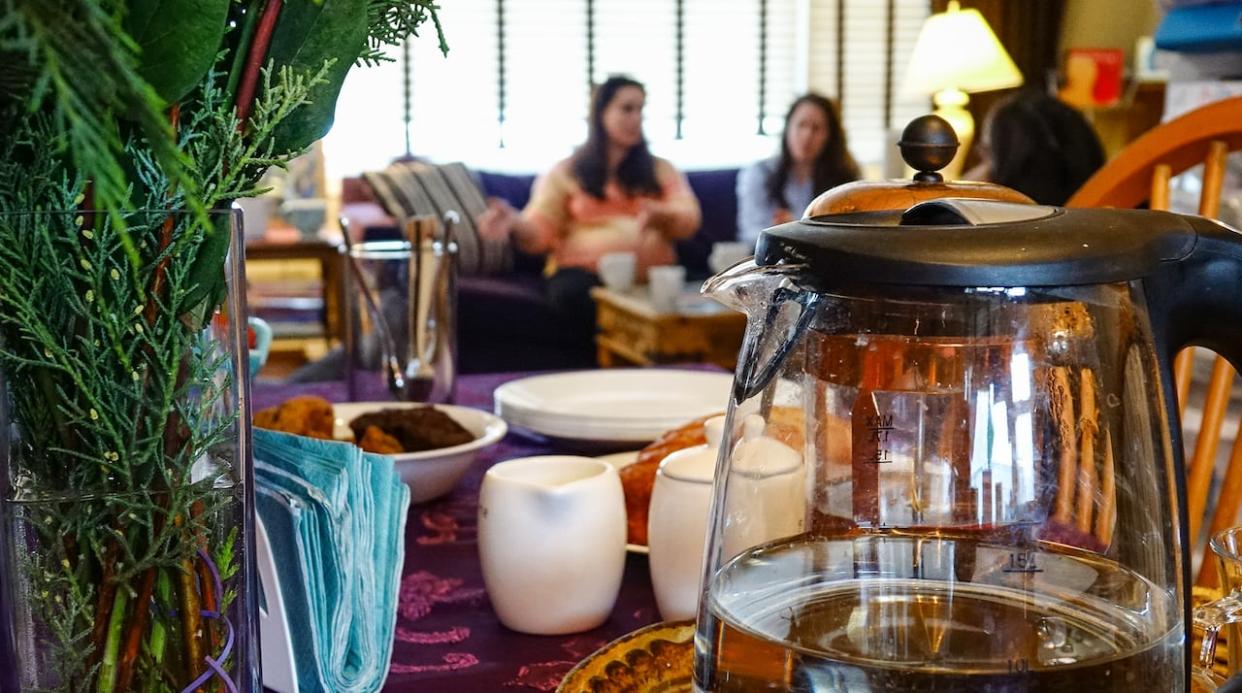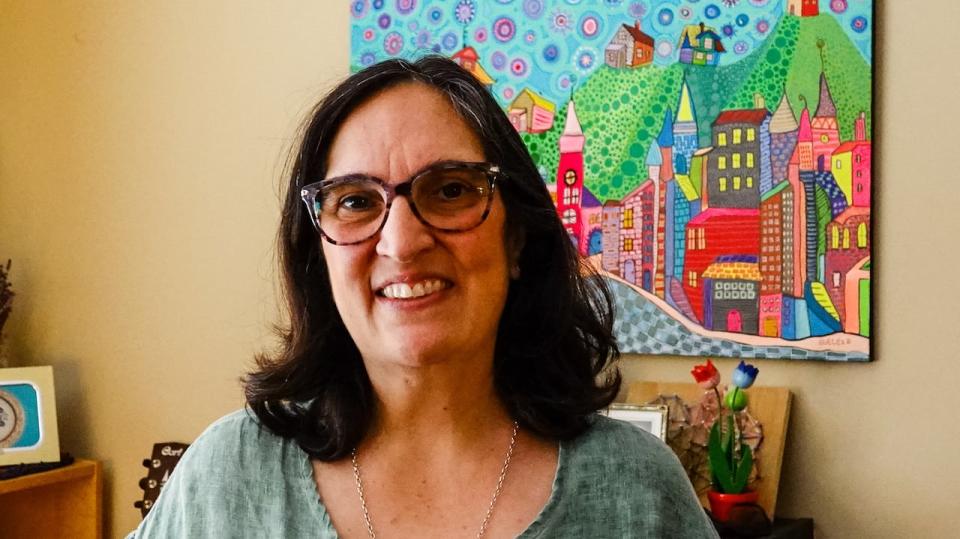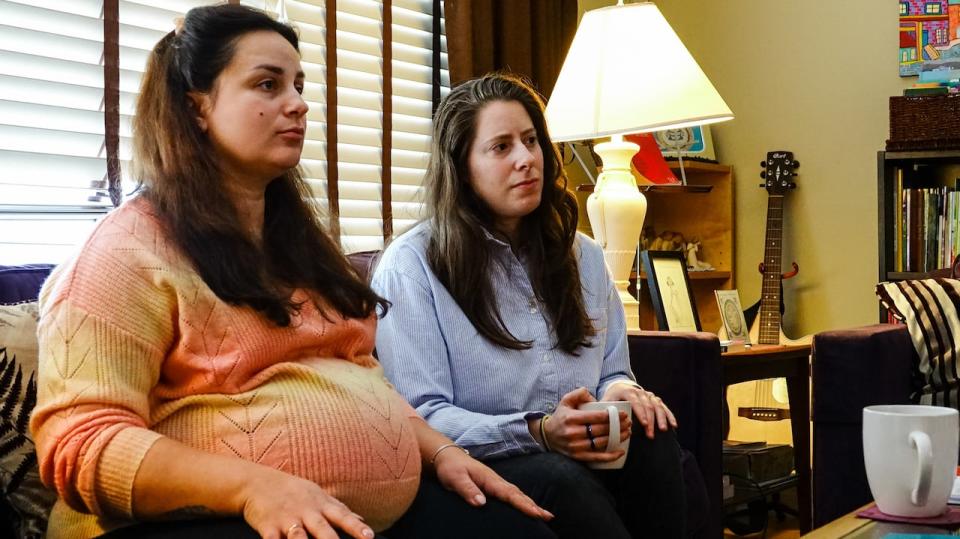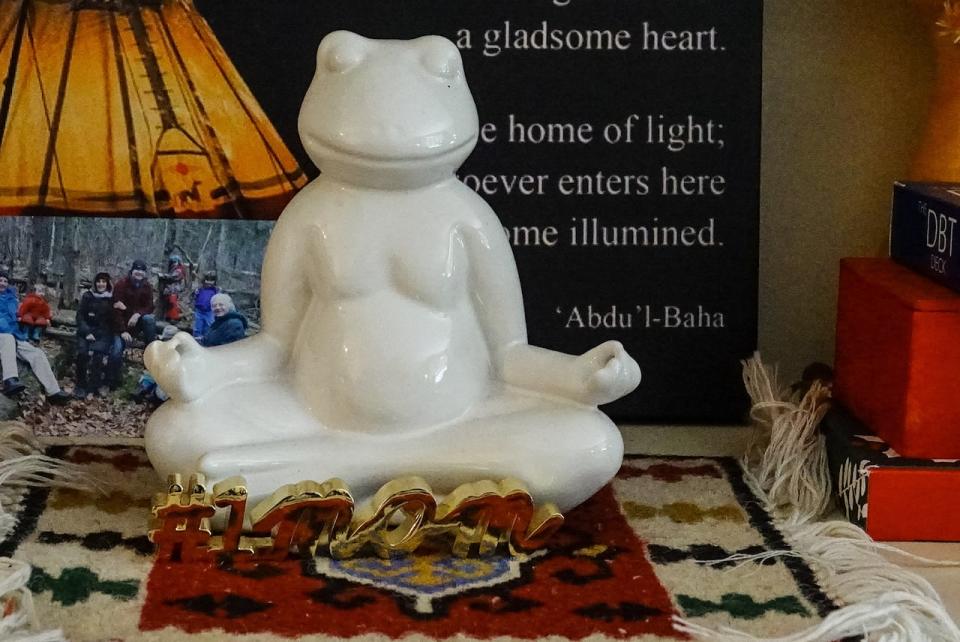'Everyone feels heard': Expert pushes for healing amid global conflict

An Ottawa expert in conflict resolution says she has developed a unique formula for peace, bringing together diverse voices scarred by war for open, honest dialogues that bridge divides and foster healing.
For people with connections to Jewish or Muslim communities, anguish over the fighting in the Middle East can be overwhelming. For many other Canadians whose families have fled conflict, the continuing Israel-Hamas war can also be re-traumatizing.
Cheshmak Farhoumand-Sims said inner peace, and spreading peace, might be within reach if more people hosted gatherings she has termed "soulful conversations."
A lifelong student of conflict studies who has researched and written on the role of women in peace-building, Farhoumand-Sims said the key is approaching those conversations with an open mind.
"It creates that environment for acknowledgement — everyone feels heard," she said.
Her approach to rapport-building, which emphasizes acknowledgement, contrition and forgiveness, borrows from Joseph Montville, the pioneer of "track two diplomacy," she added.

Farhoumand-Sims says it isn't necessary to be a conflict studies scholar to create an atmosphere of togetherness. (Stu Mills/CBC)
A safe place
The guest list at a typical gathering reads like a meeting at the United Nations featuring people with varied backgrounds. That includes Masha Balanovska from Ukraine.
"I feel a [safe] place around me," said Balanovska as she took a cup of saffron-sweetened Persian tea from Farhoumand-Sims.
Since arriving in Ottawa with her young family from Ukraine 18 months ago, Balanovska, who speaks Russian, has worried Russians might hear her speak and interrogate her for her opinion on the war at home.
Since the beginning of the Israel-Hamas war, she has felt both her "Jewish soul" and her "Ukrainian soul" under siege.
The hospitality comes naturally for Farhoumand-Sims. Her family fled persecution in Iran when she was just nine years old.
Members of her Baháʼí faith are accustomed to devotional meetings where open, heartfelt conversation is expected. Some of the "soulful conversation" gatherings begin with a song, or an inspirational reading much in the same way.
The list of people who attend, and currently face old traumas again during the fighting in Israel and Gaza, include people from the Jewish and Muslim faith, as well as Syrians, Afghans and Ukrainians. People who have known generations of conflict.
"How can we not let go of that, but look to the future?" asked Farhoumand-Sims.

Masha Balanovska, left, and Dana Strauss listen as Farhoumand-Sims speaks during a 'soulful conversation' meeting. (Stu Mills/CBC)
Shared values, no politics
At the outset, she reminds participants to keep the evening non-political, imploring people to open their minds and speak from the heart, while remaining ready to re-frame the conversation around the group's shared values when it veers off-course.
She said the aim is to "go back to basics. We stand against hate, we value empathy and compassion."
Earlier this month, Anny, a Rwandan-Canadian, shared the powerful story of her own trauma.
She recalled how, at age five, her neighbour burst into their home and murdered her family. However, the man later told Anny he hadn't been able to swing his weapon at the child as he had her parents.
Anny told the group sitting with her that evening that eventually she returned to Rwanda and, in the prison where he was kept, offered the man forgiveness.
"It does feel like we're all in this war," said Dana Strauss, a PhD student at the University of Ottawa, who said she has watched with alarm as antisemitism has grown on campus.

A Zen Buddha frog sits on a table in Farhoumand-Sims' home (Stu Mills/CBC)
No need to 'fact-check' others
Strauss said the group run by Farhoumand-Sims finally felt like a space where she could let go of her need to "fact-check" others.
"We're getting lost about what really matters," she said. "Empathy, love, listening to people who are in pain and seeing their humanity."
Farhoumand-Sims said it's not necessary to have spent a life as a "peace activist" to lead a group, and she would share her program for a peace-building gathering with others who want it.
She plans to host more events in the new year.
"It felt like I'd experienced the solution," said Strauss. "That's all I want to do now is find ways to bring that light and love that I felt in this room out to the world so we can all come to this enlightened place together."

